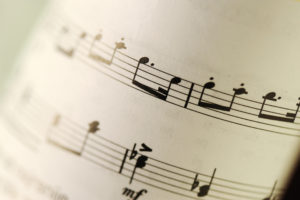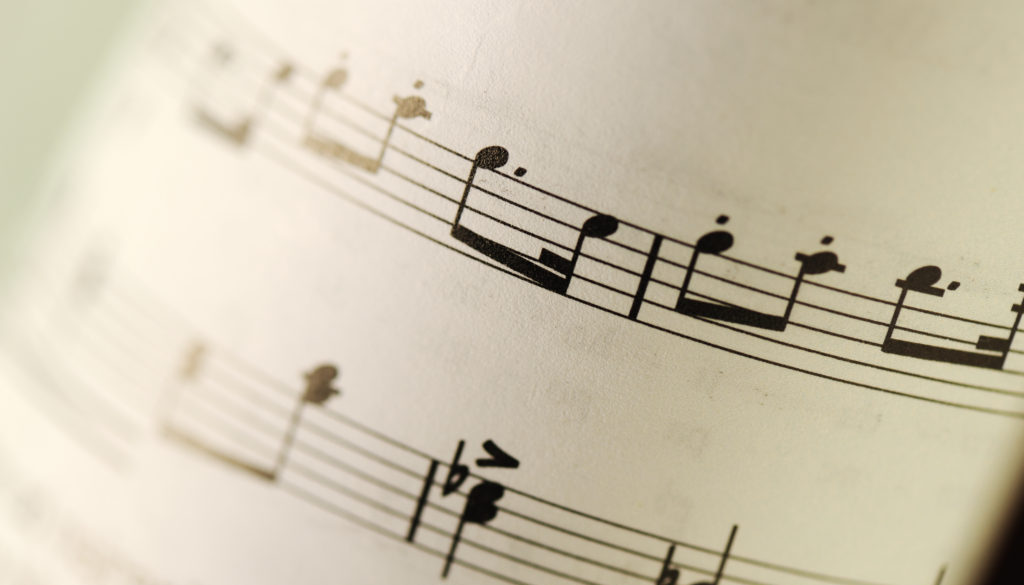Music Therapy at Reading Hospital: Treatment for Mind, Body, and Spirit
By Cara Wojciechowski, MT-BC
Music Therapist at Tower Health Reading Hospital
 Music is universally used as a means of coping, healing, communicating, and socializing. However, many people are unaware that music therapy is a clinical, evidence-based profession that targets clinical goals using various music interventions.
Music is universally used as a means of coping, healing, communicating, and socializing. However, many people are unaware that music therapy is a clinical, evidence-based profession that targets clinical goals using various music interventions.
I first learned about music therapy through a volunteer experience where I was paired with a music therapist in a hospital setting. I quickly realized that using music therapy to reduce pain and distress for hospitalized individuals would become my life’s purpose.
After becoming board-certified in music therapy, I noticed there were very few opportunities in the Berks County area, particularly in a medical setting. Around that time, I was also visiting family members at Reading Hospital and I saw an opportunity to build on the momentum of the amazing work being done at Reading Hospital. After becoming a board-certified music therapist, I created a proposal towards the development of a music therapy program at Reading Hospital and was met with immense support and encouragement from administrators. The Reading Hospital Foundation awarded a grant to fully fund a pilot program for music therapy with pediatric patients at Reading Hospital.
At the hospital, I work collaboratively with the interdisciplinary teams in the NICU, Pediatrics, and pediatric patients in the Emergency Department to provide treatment through interventions such as music-assisted relaxation, improvisation, songwriting, patient-preferred music listening, and active engagement in music-making. Studies have shown that music therapy can improve outcomes in treatment and healing processes, as well as reduce pain, distress, and length of stay in the hospital. The great advantage to music therapy is the ability to change course during a session to target interventions to the patient’s constantly changing needs. Most importantly, rather than relegating a patient to be a passive recipient of care, music therapy provides individuals with a non-threatening way to voice fears, thoughts, and wishes. Music therapy promotes positive, playful, and supportive interactions, and offers unique opportunities for family engagement and involvement through musical interaction.
While music therapy can only take place with a board-certified music therapist, there are many ways that music can be used for personal well-being. One way that I can help clients is to teach different ways to listen to music purposefully. For example, some people prefer to listen to slow, mellow music when their mood is lower, while others prefer to listen to upbeat music to help motivate a change in their mood. It’s important to become aware of how music affects each of us as individuals. Next time you listen to music, try to notice how your body responds (noticing any areas of muscle tension, changes in breathing, etc.) and how your mood changes in response to the music. Categorizing music into playlists based on these effects can be a great tool for individual well-being. Additionally, participating in music-making can be a great resource for personal healing. Singing, playing instruments, or participating in group music-making can be a great way to increase positive mood and improve your well-being. Seek out community groups, such as choirs, drum circles, or instrument ensembles, or set time aside to sing, play instruments, or listen to music.
Reading Hospital’s promise to the community is “Advancing Health. Transforming Lives.” The music therapy program is a powerful testament to Reading Hospital’s focus on promoting health and empowering the individuals in our community to live their healthies lives.



